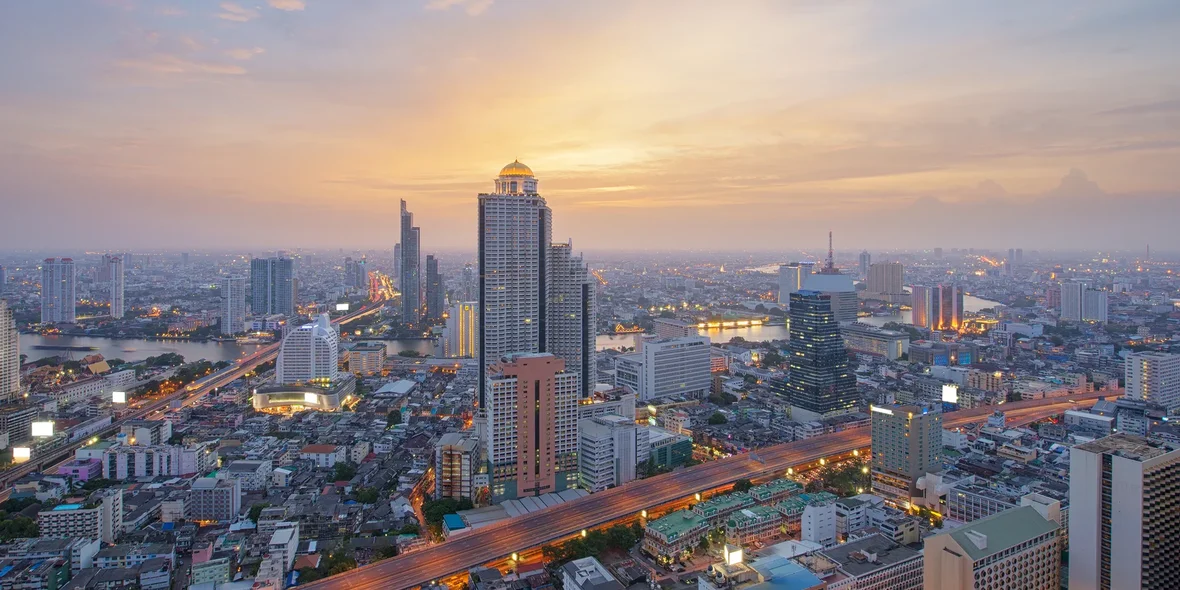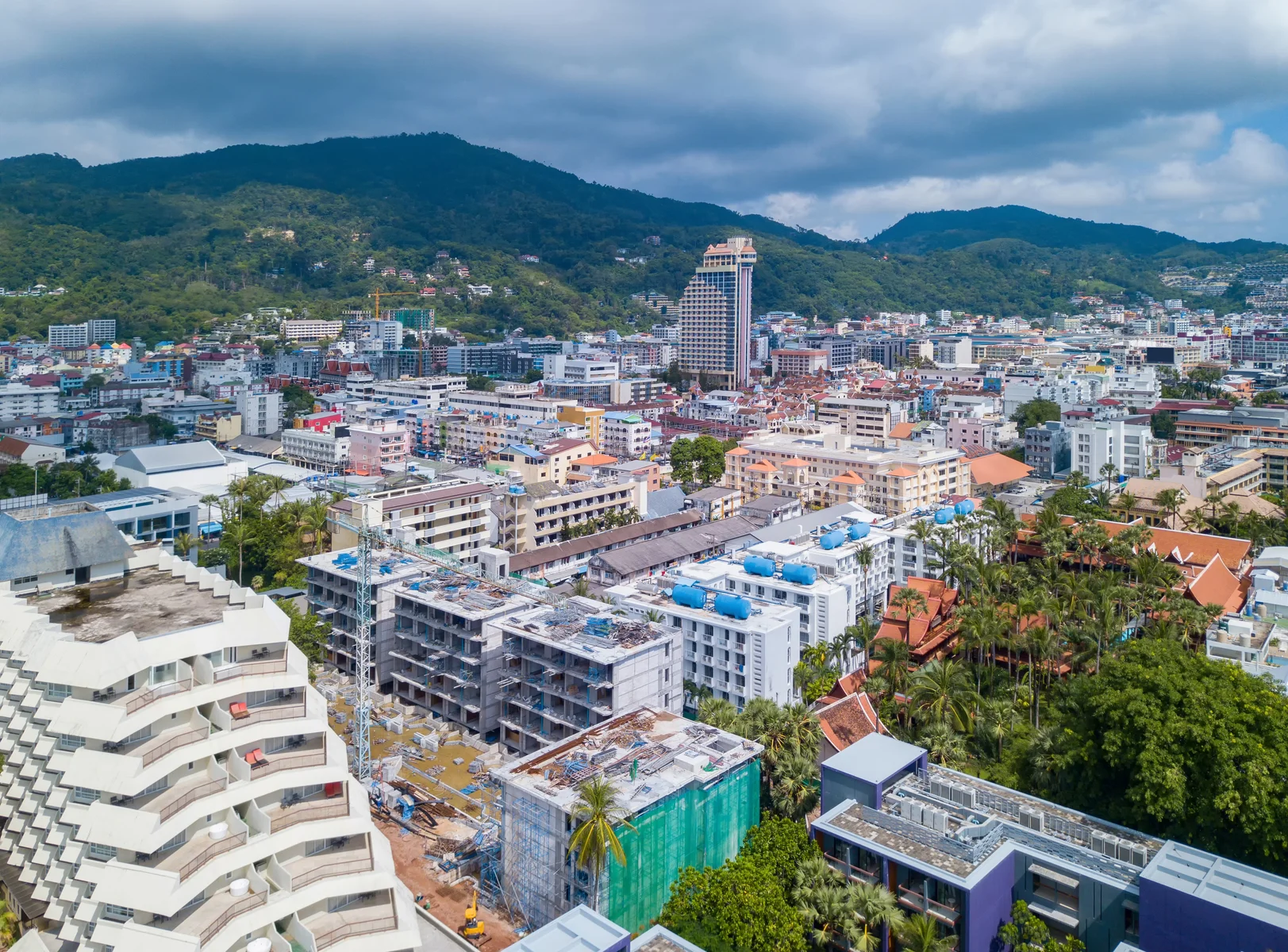
Thailand Property Market 2025: Trends, Prices, And Opportunities for Foreigners
The real estate market in Thailand is booming now — after the pandemic, foreigners are actively buying homes in this country. To understand what is happening on the market and whether it is worth investing, we talked to an expert who has been working with Thai real estate for many years.
Our interviewee Regional Sales Director (Asia) of International Property Alerts Mr. Philip Clarke explains in simple words where it is better to buy apartments and villas. He also explains how prices have changed in Bangkok, Phuket, and other popular places, and what returns you can expect from investments. He also tells us how a foreigner can properly formalize a purchase, whether it is possible to take out a mortgage, and even buy real estate for cryptocurrency.
Market News, Prices, and Interest Rates
— What’s the situation in the Thai real estate market right now? Is there any recent news?
— Thailand’s real estate market is experiencing a significant post-pandemic rebound. Demand from foreign buyers has surged, particularly in tourist-driven areas like Bangkok, Phuket, and Pattaya. The government has also introduced incentives such as long-term residency visas for wealthy foreigners and digital nomads, which are stimulating both interest and transactions. A notable trend in recent news is the push for foreign ownership reforms and smart city developments, especially in the Eastern Economic Corridor (EEC).
— What is the situation with real estate prices in Thailand? Let’s give examples for different regions. How have they changed over the last two years?
— Real estate prices have shown steady growth since 2023, recovering from COVID-era dips. Here’s a snapshot:
- Bangkok: сondo prices have rebounded by around 5–8% in central areas like Sukhumvit and Sathorn. Luxury segments saw stronger growth due to foreign demand.
- Phuket: villa prices surged by up to 20% since 2022, especially in beachside areas like Kamala and Nai Harn, driven by high-end international buyers.
- Chiang Mai: prices have grown moderately by about 4–6%, particularly in the Nimman area, where digital nomads and retirees cluster.
- Pattaya: сondominiums in high-rise buildings are up by 10–12%, driven by buyers from China and Russia.
— How do interest rates impact property prices? At what level are they now?
— Interest rates directly influence borrowing costs and demand for mortgages. In Thailand, the Bank of Thailand’s policy rate currently sits at 2.50% (as of mid-2025). This relatively high rate compared to the ultra-low pandemic levels has slightly cooled domestic borrowing, but foreign cash buyers remain active, especially in luxury markets where mortgage financing is less critical.
— How do you expect house price increases in Thailand, particularly in Bangkok, Phuket, and Chiang Mai?
— Let’s see:
- Bangkok: prices are expected to rise 5–7% annually through 2026, especially for mid- to high-end condos near transport hubs.
- Phuket: strong tourism recovery and limited inventory suggest continued price growth, potentially 8–10% annually.
- Chiang Mai: more modest gains of 3–5% are likely, as the market remains stable and attractive to long-term expats rather than speculators.
Residential properties for sale in Thailand
Popular Regions for Investments And Rental Yields
— What kinds of properties are the most popular among buyers?
Digital nomads and retirees often seek out compact condos in cities or private villas near beaches.
Investors are showing rising interest in boutique hotels, Airbnb-ready units, and mixed-use properties in tourist zones.
— Which regions offer the best investment opportunities for 2025-2026? Where are the best opportunities for investors seeking high rental yields?
— Top investment regions:
- Phuket: high-end villas and beachfront properties offer strong appreciation and yields of 6–10%.
- Bangkok: well-located condos near BTS/MRT stations see consistent 4–6% rental yields, with capital gains upside.
- Pattaya: strong demand from Russian and Chinese buyers, and yields of 5–8%, especially for modern condo units.
- Hua Hin & Koh Samui: growing appeal among expats; niche investment opportunities in wellness and luxury rentals.
— What are the rental yields on different types of properties (condos, villas, commercial)?
— I can indicate some average numbers:
- Condos in Bangkok: 4–6%.
- Villas in Phuket and Koh Samui: 6–10%.
- Commercial properties in Chiang Mai and Pattaya (cafés, co-working spaces, shops): 7–9%, depending on foot traffic and lease terms.

Buying Process for Foreigners, Mortgages, and Crypto Payments
— Foreigners from which countries are driving significant demand? Where and what are they buying?
— These countries are in the top list:
- China: top source, buying mid-to-high-end condos in Bangkok and Pattaya.
- Russia: strong buyer presence in Phuket and Pattaya, often in all-cash deals for villas and beachfront units.
- USA & Europe: seeking retirement and investment homes in Chiang Mai and Koh Samui.
- Middle East: growing interest in luxury real estate, especially branded residences in Bangkok and Phuket.
— What are the most critical steps for foreign investors to navigate the buying process effectively, and how can they avoid common pitfalls in Thailand’s real estate market?
— Key steps:
- Hire a licensed lawyer to conduct due diligence.
- Confirm title deeds (Chanote titles are preferred).
- Use registered developers for off-plan properties.
- Review condo foreign ownership quotas (max 49% per project).
- Avoid verbal agreements — always require written contracts.
Common pitfalls:
- Buying leasehold properties without understanding the limitations.
- Not verifying land or building permits.
- Overpaying due to emotional decisions or a lack of valuation.
— In general, what are the conditions for foreigners to buy real estate in Thailand? What does this process look like?
— Foreigners can legally:
- Buy freehold condominiums (up to 49% of total building area).
- Lease land/property for up to 30 years (renewable).
- Own structures (e. g., a villa) on leased land.
The typical process involves:
- Selecting a property.
- Due diligence and a reservation deposit.
- Contract signing (within 30 days).
- Final payment and land office registration.
— Can foreigners take out a mortgage to buy a property in Thailand? Are remote transactions possible?
— Mortgages for foreigners are rare and typically limited to a few banks (e. g. Bangkok Bank) and only for certain nationalities or permanent residents. Most foreign buyers pay in cash or finance through home country loans.
Remote transactions are possible using a power of attorney. Many investors complete the process without physically being in Thailand, with legal and banking support.
— Is it possible to buy real estate in Thailand by cryptocurrency, and how does this process work in practice?
— Yes, some developers and agents now accept cryptocurrency (typically Bitcoin or USDT) via third-party processors. The transaction is usually:
- Crypto is converted to THB through a licensed exchange.
- Funds are deposited into the developer’s or lawyer’s account
- The transaction proceeds as a normal property purchase.
However, this is not yet standard practice and requires experienced legal handling to comply with anti-money laundering laws.
— What makes the Thai property market attractive to investors?
— Here are the main factors:
- Affordable luxury compared to Western and regional cities.
- Visa programs for long-stay expats and wealthy foreigners.
- Strong rental demand in tourism and expat hotspots.
- High ROI in popular areas like Phuket and Pattaya.
- Legal transparency for condos, with clear ownership rights.
- Dynamic lifestyle appeal, combining business, leisure, and wellness.
To Summarize
As can be seen from our conversation with the expert, the Thai real estate market offers interesting opportunities for investors. Price growth of 5-20% in different regions, rental yields of up to 10% and growing demand from foreigners create good prospects. Especially attractive look Phuket for the luxury segment, Bangkok for stable investments in condos, and Pattaya for high yields.
The main thing is to approach the purchase with intelligence: be sure to work with trusted lawyers, study all the documents and do not rush with decisions. Thai real estate can be a great investment, but only if you understand all the rules of the game and choose the right objects in the right places.
Author
I am responsible for editorial work. I write expert interviews and guides.



















